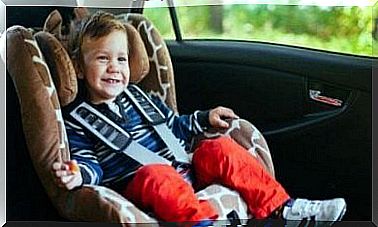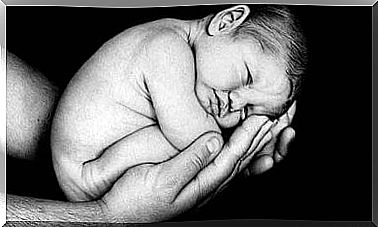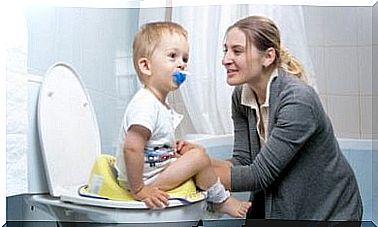Dealing With Difficult Children

In dealing with difficult children one must first remember that some of their behavior reflects our own temperament.
Many of the behaviors when dealing with difficult children are just a mirror of what they saw or learned at home.
But there are other factors that interfere with a child’s personality development and challenge those in authority.
In difficult situations it is best to avoid impulsive reactions towards the child.
As an adult, you should be in control of your emotions and not behave inappropriately yourself.
Consider the following advice to improve relationships with your children.
How should you deal with difficult children?
Limit yourself to the essentials
When a child fits into society, they find that many behaviors are not accepted.
If someone constantly causes a family discussion or argument, words lose their meaning.
You should initially limit yourself to behaviors that are dangerous or hurtful. You should only keep an eye on these.
For less “serious” behaviors, for example, you can set time limits.
Remember that when you are raising children, you must adhere to consequences for inappropriate behavior.

Take a deep breath and stay calm
When the problematic behavior becomes unavoidable, try to keep your own reaction under control. When dealing with difficult children, use a calm but serious tone of voice and avoid words that are hurtful or discouraging.
Use positive suggestions and words in everyday life at home. A calm and loving family environment will get you much further than discussions and aggressive confrontations.
Also show that what you dislike is the behavior and not the whole person.
The child needs to feel that your love is permanent and that you just want to improve the situation.
Solve problems with empathy
The best way to teach children not to be aggressive is to let them see the situation from a different perspective.
Teach them to think about the consequences and negative feelings their behavior can create in others.
If you do this from the beginning, the children will be much more sensitive to their fellow human beings.
Provide choices for difficult children
There are many ways you can achieve the desired behavior change in difficult children without arguing.
For example, instead of telling them to clean their room, you can give them choices.
Break the chores down into smaller areas and let your child choose which ones they would like to do.
When a person feels that they are being taken seriously and knows that they have the power to make decisions, they will behave more responsibly.
Give your child options that are acceptable to you and that you know will lead to the desired outcome.
Think about possible solutions instead of getting emotional
It is quite normal for certain situations to elicit emotional responses.
The best way to help children understand that there are several healthy ways to express these emotions and not let the negatives prevail.
Practice breathing techniques, take them for a walk, and most importantly, teach them not to hurt other people’s feelings in moments of anger.
After you’ve communicated and controlled your emotions, help your children resolve them.
What can you do about the situation that upset you? Children of all ages need to learn to solve their problems, big or small.

Admit your own mistakes
Part of being a parent is to admit to one’s own mistakes.
You have to lead by example. Sometimes we make mistakes and say things that we don’t mean or that slip out in the heat of the moment.
In this case, don’t hesitate to boldly admit that you made a mistake. Even adults can screw up on occasion.
Tolerance is another factor to consider when dealing with difficult children.
While the main goal is to correct behavior when dealing with difficult children and avoid future problems, we should also strive to strengthen their personalities.









